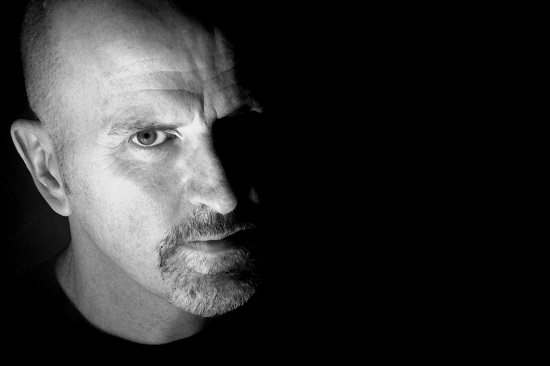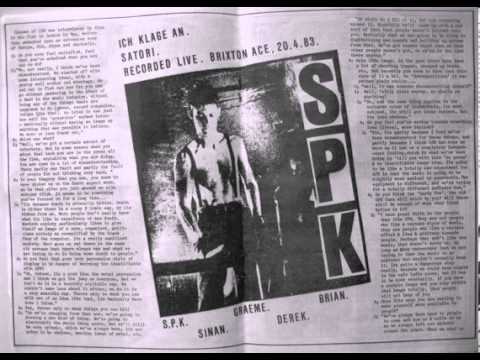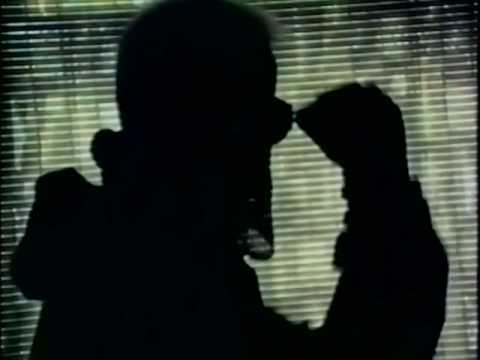“We are dealing with something for which there is only one appropriate expression, mysterium tremendum… The feeling of it may at times come sweeping like a gentle tide pervading the mind with a tranquil mood of deepest worship. It may pass over into a more set and lasting attitude of the soul, continuing, as it were, thrillingly vibrant and resonant, until at last it dies away and the soul resumes its ‘profane’, non-religious mood of everyday experience…”
Rudolf Otto (25 September 1869 – 6 March 1937) eminent German Lutheran theologian and scholar of comparative religion.
Otto’s attempts at defining the ‘numinous’ experience that is said to underline all religions also happens to be as good as any description for what it is to experience the majority of Lustmord’s music. Although having dabbled in more earthly areas that involve the “stress frequencies” of human cries and the sounds of car crashes and warfare, the majority of his releases since 1989’s definitive third album, Heresy, provoke a different kind of terror by presenting a palpable sense of an unknowable, overwhelming power. Lazily referred to as ‘dark ambient’, the awe inspiring results are perhaps best demonstrated on his most refined work to date – The Word As Power. Released by the appropriately named Blackest Ever Black in 2013, it is effectively a choral album where the artist sculpts the vocal power of such luminaries as Jarboe, Maynard James Keenan, Soriah and Aina S Olden into a series of deep rituals that travel through gentle, tranquil devotion to open up on intimidatingly vast atmospheres filled with dread, yet curiously absorbing.
Growing up in Bethesda, Wales, Brian Williams moved to central London where he became part of the embryonic, original punk and industrial scenes of the late seventies/early eighties, performing solo as Lustmord and getting recruited into SPK, Australia’s seminal industrial act who had gravitated to London for similar reasons. After squatting the same building for ten years at the Oval (“We had a really good view of the cricket ground, but of course we couldn’t give a shit because we had absolutely no interest in cricket!”) he eventually relocated to Los Angeles where his reputation for the deepest, darkest dramas in sound have since seen him courted by Hollywood for whom he has been designing sounds and producing soundtracks for well over twenty years (mainly on suitably eldritch fare such as The Crow, From Dusk ‘Til Dawn, Underworld and Pitch Black not to mention Mighty Morphin’ Power Rangers and Dennis The Menace II).
As well as releasing a steady stream of new work, occasionally involving members of Stateside cohorts in Tool and Melvins, Lustmord has started to make the odd live appearance – ‘odd’ being the operative word as often such shows are situated in untypical venues better suited to Lustmord’s large scale, reverent reverberations. His next performance will be held in an abandoned power plant as part of next month’s Berlin Atonal. So, while he prepares the mesmeric visuals for this highly suitable industrial complex, it seemed high time to catch up with him to fdsind out what makes up his particularly strange world…
ABANDONED POWER PLANTS
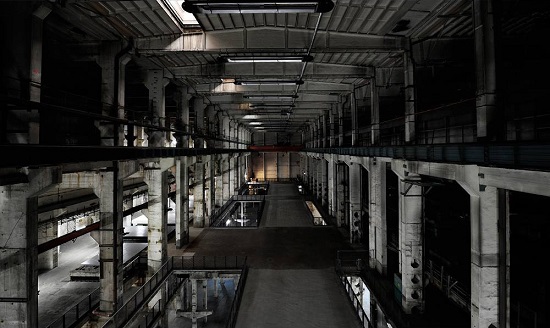
Technically this is my third time performing in an abandoned power plant. The subtext is that I won’t play in Berlin unless they provide a power plant. That’s the kind of prima donna I am! “No, I must have my power plant!” [laughs]
The last time was in Toronto about three, four weeks ago. It was really enjoyable. I don’t play live very often and it’s more interesting for me, and hopefully for the audience, if I do it somewhere more unusual. The venue in Toronto was absolutely huge – pictures don’t do it justice. You can’t capture the size of the damn place because it is so huge. So that was cool, but also if things go as they’re supposed to when I play a large place I also have a really large sound system which is a lot of fun to play with and Toronto certainly had a big sound system. I enjoyed that [laughs]. I’m kind of known for being quite loud and there’s lots of bass. When I say loud it’s not like rock music, big dick, damage your hearing kind of loud. You need volume to move a lot of the very low end and there’s not much high end so your hearing’s okay, just your clothes move and the whole building will shake. So it’s very much a visceral kind of presence, I really enjoy doing the shows for that. I’ve played in churches, power stations, in a disused iron ore mine. It’s more of an occasion and more memorable when you play an unusual venue. Well, hopefully anyway.
INDUSTRIAL PURIST
[SPK live at Brixton Ace, 1983 when Lustmord was part of the band where it was reported that “Seen mingling in the audience were members of Portion Control, the Legendary Pink Dots, Nurse With Wound, Konstruktivits, Nocturnal Emissions, Test Department, David Tibet from Psychic TV, Chris And Cosey, Bushido and numerous others.”]
A lot of music since the late seventies/early eighties period has been called ‘industrial’ but it just makes me roll my eyes. I’m something of a purist when it comes to things like industrial. It’s really interesting just how un-experimental music has been for quite a few decades now and how people aren’t really angry any more, well I guess they are but they feel powerless. Punk and industrial people were angry and powerless but they still did something. That period is really influential, but it didn’t influence some people to be original and try new ideas, people just copied a lot of that stuff which I find really strange – obviously these are general sweeping generalisations… there is interesting stuff out there, but we don’t always get to hear about it unfortunately.
I was at one of the very first Nurse With Wound shows in Brighton. They were supporting SPK [at Coasters in 1984]. I was at the mixing desk. Steve Stapleton is a really nice guy – he would book the studio every Friday and then spend three or four hours recording stuff that would end up as Nurse With Wound. My wife at the time and I would go down there, take some beers – it was a social thing – and then a year or two later there’d be a Nurse With Wound album and he’d go, “Oh, you’re on this bit!” [laughs]
People like Geff [Rushton aka John Balance] from Coil ended up being on my first album [Lustmørd, 1981]. SPK, Throbbing Gristle and the Cabs would share information. There were all these outsiders, people on the outside doing their thing, who would find each other. We were on the same side and in those days particularly – the early industrial scene – people were watching each other’s backs. But I think jumping a couple of decades later on I hooked up with a band over here in the US called Tool, and the Melvins. So it was a completely different scene but that was the first time for me in years that I came across a bunch of people who thought the same way as I did.
CHRIS & COSEY / THE GENETIC TERRORISTS
I really liked what they were doing so I wrote to them – it is that simple. There was an exchange of mail over a year or so and we eventually met. Cosey and Chris introduced me to SPK and they were encouraging me to work on sounds on my own. Then we became really good friends and we’re still really good friends.
I often forget about The Genetic Terrorists [a collaboration between Lustmord and Chris & Cosey released on Wax Trax at the end of the eighties]. That project was us just having fun – it’s okay to have fun you know! It was done quickly as a kind of response to what was happening to industrial music. As I mentioned I am a purist: Monte Cazazza’s a really good friend of mine and he’s the guy who coined the term industrial and Chris & Cosey had the label, Industrial [Records], as a result of him suggesting the name. For me, industrial is what they were doing with the label at that time. It was a really small catalogue and a really brief period of time. Throbbing Gristle to me is industrial. And then later on it became this kind of ‘rock band with a sampler’ kind of thing. What the fuck? That’s nothing to do with Industrial, that’s just rock music with a dance beat.
The TGT thing was us going, “Oh fuck, we can do that shit, we can do some silly thing.” I did do a 12” with them [CTI ‘s Conspiracy International Two, 1985] – they’re really good people, they’re some of the nicest people you could possibly meet.
RELIGIOUS MUSIC
On the very first Lustmord album there’s some choral work so the influence of religious music has always been there. I’m very much an atheist but at the same time I’ve always really liked the focus and the power of religious music. One of the things I’m really interested in about music is how it works on us emotionally and on our brains.
There’s a lot of power in sound, so allying that to religious music, the ritualistic aspect if you wish, gives it, if you’ll pardon the pun, an extra resonance. I like Tibetan and a lot of Gregorian choral stuff, it’s not quite tangible but there’s a quality that I really like and it’s an influence on a lot of stuff I do, but of course without the religious bullshit.
I’m really big on concepts, there are a lot of ideas behind my music. Before I work on an album I know where it’s going to go, it has a beginning, middle and an end, and there’s a whole idea behind it and what it represents as far as the cover art and symbology in it and where it takes you. And then I sit down and record the damn thing. I don’t talk so much about some of the meaning in my own work because that’s not the point, not because it’s a big secret, but I kind of like it not to be known, I kind of like people to hear it and come up with their own interpretation or for it to affect them in its own way.
That idea [for The Word As Power] is about twenty years old. I had a very specific idea of how it should sound and what kind of voices should be on it but I didn’t know the people who had those voices. More recently over the last few years I’ve got to know those people however [vocalists Jarboe, Maynard James Keenan, Soriah and Aina S Olden were all specifically recorded] so finally I could do the album. I like the harmonies of Eastern European choral music; they have this drone component which I really like so there’s one track that had a Georgian-Armenian influence. Another one is a Japanese folk song but most of them I’d mapped out – either played it with another instrument or just created a scratch track to give people an idea of how they should sing it. And of course the people who were doing the vocals were encouraged to make it their own. That was the point of working with them – I wanted their sound.
HERESY
This is where I actually found my sound. I think by the second album [1986’s Paradise Disowned] I was getting it, but I nailed it on the third one, Heresy. Vastness, that sense of the cosmic; it sounds like I’m talking shit but I tend to think along a cosmic scale. I don’t mean to sound full of myself, I mean it in the sense that things are really vast and our brains aren’t capable of grasping the scale of it and I like that.
There’s an album I hope to do eventually – I may even do it next – based on deep space recordings, which I’ve been collecting for years. Conceptually, I really like this idea but also a lot of the sounds are really interesting, cool sounds. Radio telescopes pick these sounds up constantly and when the Voyager probe went out they were recording and sending things back, starting with the solar system and then further out into deep space. This is what radio telescopes do: just listen to this noise all the time. That’s how they map out the universe: they’re pointing right at a pulsar or a galaxy and they’re picking up sounds from that object. So all of the sounds I’m going to use, I know exactly what they are – that’s such and such a galaxy, such and such a star or that’s Pluto for example.
TRINITY
[TRINITY was a collaboration between Biosphere and Lustmord that explored the first tests of nuclear weapons in the New Mexico desert.]
The very first nuclear test was called ‘Trinity’. It took place in New Mexico and we did some recordings there. There are two locations – Los Alamos is where the first nuclear device was developed and then White Sands which is a few hundred miles from there where the first nuclear device was detonated. Now White Sands these days is a functioning missile range so there are only certain parts you can visit and only at certain times of the day. In fact there are large parts you’re not supposed to go into at all. Los Alamos is on top of a plateau and has all these canyons and this was where the first fast-neutron nuclear reactor was built. Both are still highly radioactive so there was a different kind of quality to the place; a different kind of sound. You’d go into a cave where some of the early fusion devices had been stored and people are still working there so it’s top secret.
KENNETH GRANT
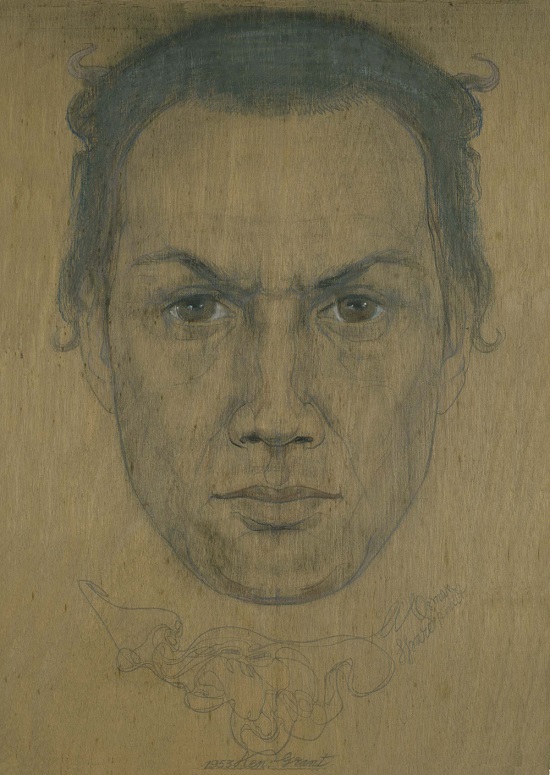
I have most of his first editions. Crowley… I don’t know… there’s a hell of a lot of humour in his work so I like that but I don’t find it particularly interesting or very readable. Whereas Kenneth Grant, his stuff is just crazy in a really fun way, he comes up with these outlandish ideas and I just love the incredible mythology he creates and how he taps into Lovecraft’s thing and Crowley’s thing. I also love this idea of hidden, dark forces. The human race is good at learning things and discovering, but as much as we like to think this world revolves around us and we’re really important, on a universal scale we’re meaningless. We’re insignificant in the grand scheme of things. We need to have a little bit more humility because of this. A lot of people have a need to believe in some kind of controlling mechanism or a controlling deity or whatever but I don’t need to believe. I think the universe is pretty fucking fascinating without all that stuff; without any kind of dogma or needing to attribute the universe to some kind of extreme intelligence. But at the same time I love the ideas dreamed up by Lovecraft, Grant and Crowley. There are some pretty way out ideas in Grant’s work and some of these ideas are quite inspiring in their craziness.
KENNETH ANGER
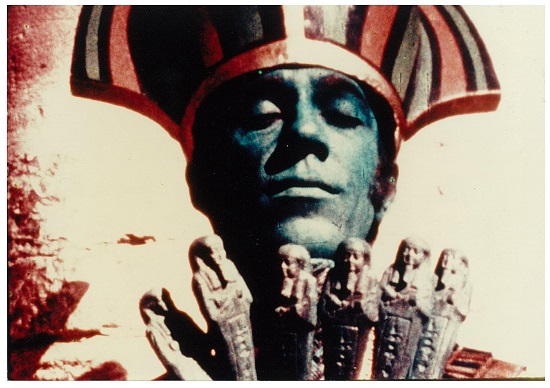
I come from a small town and when I was 16 or 17 I didn’t feel the same as other people. I didn’t have the same interests as my contemporaries growing up and I didn’t feel like I belonged where I was. I remember I joined this small film club. It was about a dozen people, and they would show Hiroshima Mon Amour and a whole bunch of art films. One time they screened was all the Kenneth Anger movies: Scorpio Rising, Inauguration Of The Pleasure Dome… It was inspiring, the same with hearing Throbbing Gristle for the first time. It was like, “Ah, there are other people who get where I’m coming from and doing their own thing." So I watched his movies and also learned how influential he was on Scorsese. It was so nice to have that kind of perspective to follow. And I also learned after reading his books – he’s a fucking character! And then years later I had dinner with Kenneth Anger, which is really strange. He bought the dinner which was even stranger!
HOLLYWOOD
I think it’s interesting that even though I come from a small town, I got to know Throbbing Gristle and all those industrial people. Then years later Kenneth Anger bought me dinner, I had a beer with Angelina Jolie, I had a cocktail with Burt Bacharach and I’ve been hanging out with Tool. It’s kind of it’s interesting how all this stuff happens. With Angelina Jolie, I actually did have a beer with her but that was because my wife [Tracey Roberts] was managing a recording stage that she was working on – I was there one night and she introduced herself. It’s just one of those funny little anecdotes. Burt Bacharach – that was at a party through my wife’s work again. I’ve met a lot of people through the soundtrack and sound design work I do in the film world, although I haven’t done much ofa that for a while.
Doing film scores, orchestral sessions and choir sessions has given me access to that kind of musical situations which have been a real benefit to recording Lustmord music. The difference with commercial jobs is obviously I’m working for someone else and they want something specific so I do what they want as opposed to what I think should happen. But a lot of the time people will want me to do something because they like what I do so they will want me to bring my thing with me.
TRACEY ROBERTS
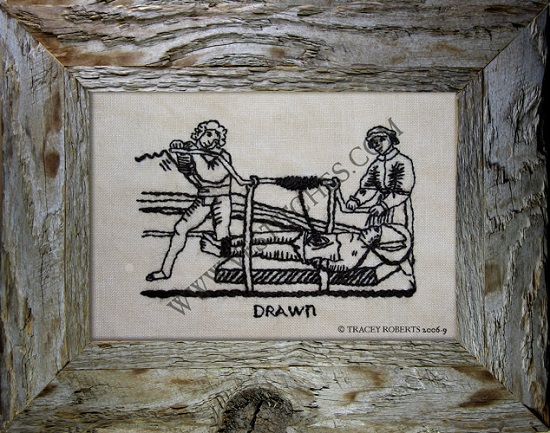
We’ve been together for over thirty years now, we’re kind of a comedy duo, we get into all kinds of trouble together. We enjoy each other’s company and we have fun. And she does Vestitches, people go, “Ah, it’s very dark”, well, she’s dark just the same as me. She’s a fun person but she also does this tapestry thing which is all about torture. She did her first show at The Museum of Death because we know the people who run it.
It’s funny, people come round to our house and look at our books. We have one section on our shelving which is all really rare books on torture and execution. There are not that many books on torture but we’ve got a lot of them. People will say to me, "Ah yeah, that’s typical. You would have that." And I say, “They’re not my books, they’re my wife’s!” She’s fascinated by all that stuff but what has always been interesting for me and for quite a few people about what you might call taboo subjects – why is that? Why don’t we talk about death? Why is that hidden? Why isn’t it acceptable to openly discuss various subjects?
CHURCH OF SATAN
[In 2006 the Church of Satan asked Lustmord to provide a live score to their Satanic High Mass as part of their 40th Anniversary celebrations.]
I played solo shows in 1981 and then didn’t play live again for 25 years. I’d been meaning to do some here and there but I never got round to it for various reasons. But I was in the frame of mind to try to do something live in 2006 and then The Church Of Satan called up. They said, “We’re doing this thing, it’s special and invite only and people are coming in from all around the world. It’s going to be on 6/6/6.” And I thought, “Fuck, I’m going to have to do that because it’s so funny – The Church of Satan, with my reputation, with my image!” It’s Spinal Tap, it was too funny not to do it. As I’ve said I’m an outspoken atheist and nobody tried to convert me or anything, if anybody had tried to get me to join I’d have been really annoyed, but they were all really nice, very pleasant. Over the years people have assumed I’m a Satanist because of that event. It doesn’t upset me, but people think it in a negative context. I think the whole thing is silly anyway but I’ve also played in churches and nobody has ever asked me if I’m a Christian.
The ritual was an hour long and during that time I was on stage in the back doing the sounds, kind of ad libbing a lot of stuff depending on what was going on. You know how people think of Satanists – that they’re really dark? Well, it was funny that nobody came up to me and talked to me but over the next few days I got messages from people who had been there saying: “Oh, it was so good to see the show”; “Oh, I was so in awe, I so wanted to talk to you but I was too nervous to come up and talk to you.” I got a bunch of emails like that and I thought, “Fuck, I’m in a room of Satanists and they’re all too scared to come up and talk to me!” [laughs] The man who scares Satanists – quite a good thing to be I think.
DUB
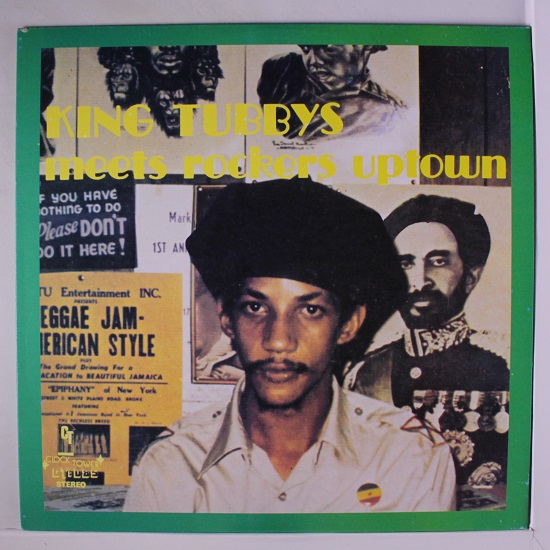
I listen to it a lot. The stuff Errol Thompson was doing with Joe Gibbs, King Tubby Meets Rockers Uptown – that’s an all time classic, everyone should have that album.
Around ’76, ‘77 there was some really good music coming out during that period. I used to go to Liverpool a lot, to a club called Eric’s where all the punk bands would play. There was a really good record shop called Probe just down the street from there. They would have the Jamaican imports so I would have to go in there and buy a bunch of dub albums. I’ve always liked the bits between the notes, the missing bits, the bass lines, the structure of the sounds; those things are very influential on the way I work. You might not hear dub in my music but if you know it is an influences on me, then it’s kind of obvious.
I did an album [Lustmord Vs Metal Beast, 1997] with a friend of mine called Chad. His day job was being a drum programmer who worked with Alanis Morrissette and other big artists and at night he’d be coming home and doing all of this manic electronic music. We’d hang out and get drunk while he was working with Billy Idol. Knowing that Billy was into dub, I suggested to Chad that we should do a dub mix. So we all hung out and he was a really nice guy who was really into the idea. It was all planned out but then the record label lost a shit load of money and they laid a lot of people off during the same month. He was one of the ones to get laid off and his album was dropped. They wouldn’t give him his album because they’d paid for it and according to his contract he couldn’t release any of it. So he said, “Fuck it” and simply put it up online so you could get it via Bit Torrent – punk still lives see! I lost touch with him, it would be really nice to get back in touch and actually do something.
In 2008 Lustmord did a dub remix album of music by Maynard James Keenan’s Puscifer project. I’m really proud of those things. Most of the remixes I do are dub; I wish more people would ask me because I love doing that stuff. Of all the stuff I’ve done that’s the one I’m most proudest, that’s the one I really like.
Lustmord is playing the Contort curated Sunday at Berlin Atonal on 23 August and Cold Waves festival, Chicago on 25 September. For more information visit his official site

